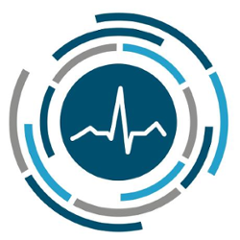RADAR-Schemas
Avro schemas used in RADAR-base. The schemas are organized as follows:
- The
commonsdirectory contains all schemas used inside Kafka and data fed into Kafka.- In the
activesubdirectory, add schemas for active data collection, like questionnaires or assignments. - In the
cataloguesubdirectory, modify schemas for cataloguing data types. - In the
kafkasubdirectory, add schemas used throughtout Kafka, like record keys. - In the
monitorsubdirectory, add schemas for monitoring applications that gather data. - In the
passivesubdirectory, add schemas for passive data collection, like wearables. - In the
streamsubdirectory, add schemas used in Kafka Streams.
- In the
- The
specificationsdirectory contains specifications of what data types are collected through which devices. - Java SDKs for each of the components are provided in the
java-sdkfolder, see installation instructions there. They are automatically generated from the Avro schemas using the Avro 1.8.2 specification.
Usage
This project can be used in RADAR-base by using the radarbase/kafka-init Docker image. The schemas and specifications can be extended by locally creating a directory structure that includes a commons and specifications directory and mounting it to the image, to the /schema/conf/commons and /schema/conf/specifications directories, respectively. Existing specifications can be excluded from your deployment by mounting a file at /etc/radar-schemas/specifications.exclude, with on each line a file pattern that can be excluded. The pattern should start from the specifications directory as parent directory. Example file contents:
active/*
passive/biovotion*
Contributing
The Avro schemas should follow the Google JSON style guide.
In addition, schemas in the commons directory should follow the following guidelines:
- Try to avoid abbreviations in the field names and write out the field name instead.
- There should be no need to add
valueat the end of a field name. - Enumerator items should be written in uppercase characters separated by underscores.
- Add documentation (the
docproperty) to each schema, each field, and each enum. The documentation should show in text what is being measured, how, and what units or ranges are applicable. Abbreviations and acronyms in the documentation should be written out. Each doc property should start with a capital and end with a period. - Prefer a categorical specification (an Avro enum) over a free string if that categorization is expected to remain very stable. This disambiguates the possible values for analysis. If a field is expected to be extended outside this project or very often within this project, use a free string instead.
- Prefer a flat record over a hierarchical record. This simplifies the organization of the data downstream, for example, when mapping to CSV.
- Prefer written out fields to arrays. This simplifies the organization of the data downstream, for example, when mapping to CSV.
- Give each schema a proper namespace, preferably
org.radarcns.passive.<vendor>fully in lowercase, without any numbers, uppercase letters or symbols (except.). For the Empatica E4, the vendor is Empatica, so the namespace isorg.radarcns.passive.empatica. For generic types, like a phone, Android Wear device or Android application, the namespace could just beorg.radarcns.passive.phone,org.radarcns.passive.wear, ororg.radarcns.monitor.application. - In the schema name, use upper camel case and name the device explicitly (for example,
EmpaticaE4Temperature). - For fields that are inherent to a record, and will never be removed or renamed, no default value is needed. For all other fields:
- if the type is an enum, use an
UNKNOWNsymbol as default value - otherwise, set the type to a union of
["null", <intended type>]and set the default value tonull.
- if the type is an enum, use an
Validation phase
Avro schemas are automatically validated against RADAR-base guide lines while building. For more details, check catalog validator.
Test setup
The RADAR schema tools can be tested locally using Docker. To run the tools, first install Docker. Then run
docker-compose build
docker-compose up -d zookeeper-1 kafka-1 schema-registry-1
Now you can run tools commands with
# usage
docker-compose run --rm tools
# validation
docker-compose run --rm tools radar-schemas-tools validate /schema/merged
# list topic information
docker-compose run --rm tools radar-schemas-tools list /schema/merged
# register schemas with the schema registry
docker-compose run --rm tools radar-schemas-tools register http://schema-registry-1:8081 /schema/merged
# create topics with zookeeper
docker-compose run --rm tools radar-schemas-tools create -s kafka-1:9092 -b 1 -r 1 -p 1 /schema/merged
# run source-catalogue webservice
docker-compose run -p 8080:8080 --rm tools radar-catalog-server -p 8080 /schema/merged
# and in a separate console, run
curl localhost:8080/source-types
# back up the _schemas topic
docker-compose run --rm tools radar-schemas-tools schema-topic --backup -f schema.json -b 1 -s kafka-1:9092 -f /schema/conf/backup.json /schema/merged
# ensure the validity of the _schemas topic
docker-compose run --rm tools radar-schemas-tools schema-topic --ensure -f schema.json -b 1 -s kafka-1:9092 -f /schema/conf/backup.json -r 1 /schema/merged
Using radar-schema-tools with Confluent Cloud
-
Create topics on Confluent Cloud
1.1. Create a
java-config.propertiesfile. A Confluent Cloud config for Java application based on this template.# Kafka bootstrap.servers={{ BROKER_ENDPOINT }} security.protocol=SASL_SSL sasl.jaas.config=org.apache.kafka.common.security.plain.PlainLoginModule required username="{{ CLUSTER_API_KEY }}" password="{{ CLUSTER_API_SECRET }}"; ssl.endpoint.identification.algorithm=https sasl.mechanism=PLAIN
1.2. Run
cc-topic-createcommanddocker run --rm -v "$PWD/java-config.properties:/schema/conf/java.properties" radarbase/radar-schemas-tools radar-schemas-tools topic-create -c /schema/conf/java-config.properties /schema/merged -
Register schemas on Confluent Cloud schema registry
docker run --rm radarbase/kafka-init radar-schemas-tools register SR_ENDPOINT -u SR_API_KEY -p SR_API_SECRET /schema/merged
